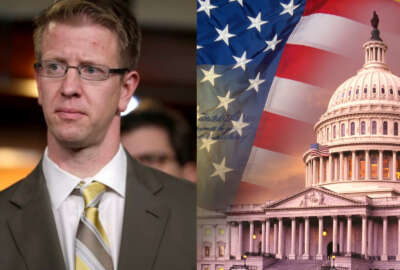Debt deal’s initial savings just ‘first bite of the apple’
Dan Adcock, the legislative director of the National Active and Retired Federal Employees Association told Federal News Radio that the initial round of budget...
wfedstaff | June 4, 2015 9:30 am
By Jack Moore
Federal News Radio
In the debt-ceiling debate, federal workers often played the part of pawns.
In many of the proposals that were discussed before a compromise was struck earlier this week, the stakes were high. Proposals ranged from increases to out-of-pocket health insurance costs to reducing cost-of-living adjustments for annuities.
“Fortunately, none of those things are in the package that’s being wrapped up today,” said Dan Adcock, the legislative director of the National Active and Retired Federal Employees Association in an interview with Federal News Radio.
Still, federal workers aren’t out of the woods yet.
The plan that Congress and the White House agreed on imposes caps to discretionary spending – the part of the budget dealing with the day-to-day operation of the federal government – for the next 10 years, ultimately to the tune of about $900 billion.
But even this round of trimming the growth of future agency spending is only the “first bite of the apple,” Adcock added.
The debt plan also includes the creation of a 12-person Congressional committee tasked with making an additional $1.2 trillion in cuts to the budget. That’s where the second – and potentially far more poisonous – bite of the apple comes in, he suggested.
Adcock acknowledged the climate for federal employees is still uncertain at this point. But he said feds should remind policymakers that, “If you ask for these cuts, you’re going to have a second-rate government.”
At a more personal level, federal workers should “revisit their own finances,” he said. At a minimum, they should be contributing 5 percent of their salary to their Thrift Savings Plan, which is matched their agency, and they should consider giving more.
“At the very least, what you have in that account cannot be taken away,” Adcock said.
In addition, now that a debt plan has been agreed upon, the Treasury Department, which had stopped issuing securities to the TSP’s G Fund to help the government pay its bills, will now repay with back interest.
RELATED STORIES:
TSP board assures Congress of G Fund’s status
Why debt ceiling won’t impact TSP
Copyright © 2024 Federal News Network. All rights reserved. This website is not intended for users located within the European Economic Area.





